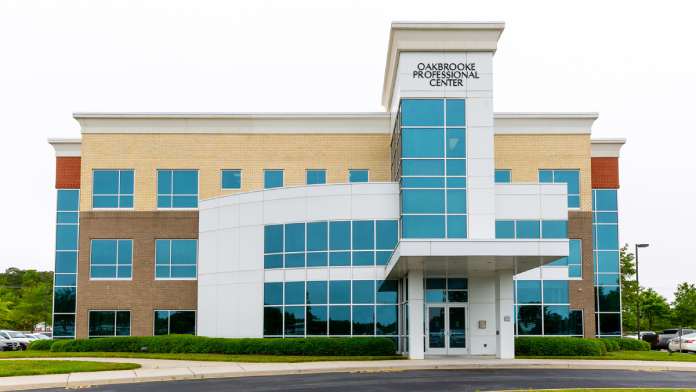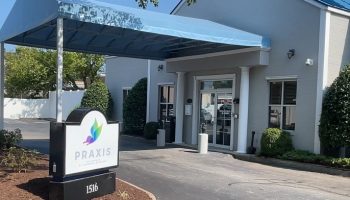BrightView Chesapeake Innovation Drive

About BrightView Chesapeake Innovation Drive
BrightView stands out for adults navigating opioid use challenges across the independent city of Chesapeake, Virginia. One former client noted, ”Friendly staff, always willing to help in a timely fashion. I love these people, they helped me get my life back.” Located in Chesapeake’s Greenbrier/Battlefield area, the clinic is set within a thriving suburban business corridor that ensures seamless access.
It’s east of Oak Grove Lake Park and southwest of the Historic St. Luke’s Episcopal Church. Fully credentialed and multidisciplinary professionals guide clients toward long-term abstinence through a unified recovery strategy involving medication-assisted treatment (MAT) and psychological support. Besides its nurturing and nonjudgmental outpatient atmosphere, BrightView’s affordable opioid treatment reinforces its reputation as a trusted local partner in opioid recovery.
They take Medicare and Medicaid. If you’re uninsured, their team is ready to help you navigate coverage options and get the support you need. Flexible payment options are also available for uninsured clients with limited financial resources.
Unified Support For Long-Term Stability
BrightView’s unified opioid addiction recovery begins with MAT to support safe progress. Clients are prescribed methadone, Suboxone or Vivitrol as part of their personalized recovery plan following a detailed intake assessment. These FDA-approved medications reduce cravings, ease withdrawal symptoms and support long-term stability by normalizing brain chemistry.
You’ll then attend therapy sessions in a supportive setting to address the emotional challenges fueling your opioid use from trauma and anxiety to grief, guilt and shame, all while building effective sober strategies to prevent relapse.
Their social support team helps you identify and overcome barriers like unstable housing, unemployment or lack of medical care through linkage to vital community resources. This well-rounded support enables you to rebuild your life with stability, purpose and lasting confidence.
| Levels of Care | Detox Service Setting | Programs | Payment Options |
|---|---|---|---|
|
Inpatient and residential programs provide round-the-clock medical and emotional support as you live at the treatment facility. This level of care may be recommended if you have severe addictions or mental health conditions since it removes outside distractions and allows you to focus solely on therapy. |
In outpatient therapy, you’ll attend therapy sessions several times each week while living at home. This is ideal if you have a strong support system and a lower risk of relapse. Outpatient treatment offers flexibility to maintain work, school or family obligations. |
||
|
Inpatient detox occurs in a dedicated treatment facility. You’ll live there around the clock and receive intensive medical support and supervision to help manage your withdrawal symptoms. It is suitable for individuals with moderate to severe addictions as it ensures a stable detox environment. |
Outpatient detox gives you access to medically supervised withdrawal services while still allowing you to live at home. You’ll attend a clinic for treatment and monitoring. This flexible option is suitable for those with mild to moderate withdrawal symptoms who have strong support systems. |
||
|
Alcohol detox programs offer medical support to help individuals withdraw safely from alcohol. Your care team may use medications to ease your symptoms and provide medical monitoring to address complications. |
Drug detox programs support individuals who are withdrawing from addictive substances like cocaine and heroin. Medical support helps you manage symptoms in a controlled and safe environment so you can achieve initial sobriety. |
||
|
Private Insurance
|
Self Pay
|
Levels of Care
Inpatient and residential programs provide round-the-clock medical and emotional support as you live at the treatment facility. This level of care may be recommended if you have severe addictions or mental health conditions since it removes outside distractions and allows you to focus solely on therapy.
In outpatient therapy, you’ll attend therapy sessions several times each week while living at home. This is ideal if you have a strong support system and a lower risk of relapse. Outpatient treatment offers flexibility to maintain work, school or family obligations.
Detox Service Setting
Inpatient detox occurs in a dedicated treatment facility. You’ll live there around the clock and receive intensive medical support and supervision to help manage your withdrawal symptoms. It is suitable for individuals with moderate to severe addictions as it ensures a stable detox environment.
Outpatient detox gives you access to medically supervised withdrawal services while still allowing you to live at home. You’ll attend a clinic for treatment and monitoring. This flexible option is suitable for those with mild to moderate withdrawal symptoms who have strong support systems.
Programs
Alcohol detox programs offer medical support to help individuals withdraw safely from alcohol. Your care team may use medications to ease your symptoms and provide medical monitoring to address complications.
Drug detox programs support individuals who are withdrawing from addictive substances like cocaine and heroin. Medical support helps you manage symptoms in a controlled and safe environment so you can achieve initial sobriety.
Contact

Chika Uchendu is a multi-niche and seasoned SEO writer with expertise in personal finance, technology and health. He’s had over 10 years of experience creating impactful content that resonates with diverse audiences. His journalism and digital marketing background enables him to combine data-driven analysis with engaging storytelling. This helps drive engagement and grants target audiences access to valuable information.
Chika has worked for Benzinga, Motley Fool, Webopedia and many other popular online media outlets on a freelance and contractual basis. He is using his voice to drive awareness and meaningful change among people dealing with the pandemic of substance use disorder. Chika is an ambivert who enjoys sports, hiking, reading and video gaming.

Peter W.Y. Lee is a historian with a focus in American Cold War culture. He has examined how popular culture has served as a coping mechanism for the challenges and changes impacting American society throughout the twentieth century.




